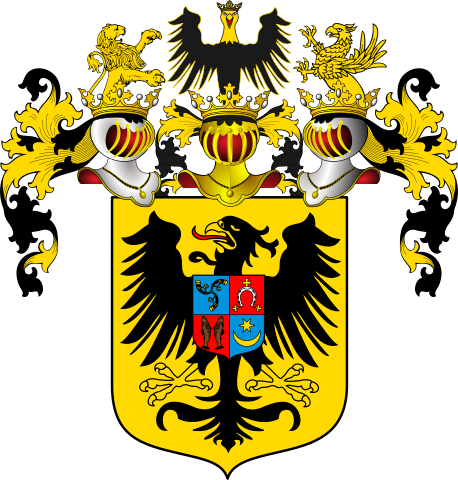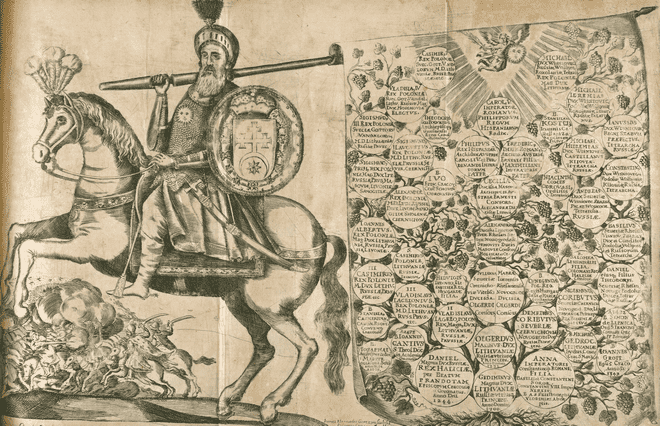IV-IV. January 7, 1573. Warszawa, Polish Crownlands.
- Location
- United States
"It is not just in the cruelties and tortures inflicted upon the bodies of innocent folk that we may find abomination before God and the laws of nature and honor!" you continue.
"The first sight that met my eyes during the evil night in Paris – though it was one of the smaller terrors – was perhaps the most alarming of all: the body of Admiral Coligny, handless and headless with its manhood carved off–" the rancor begins anew, and this time several clerics rise from their seats and shout inaudibilities at you. A few men on both sides are being held back by their compatriots. Back off.
"Imagine, then," you try and reroute, "the murder and public parading of one of our great senators or hetmen through the streets of Kraków by a mob of fanatics!" Hands are on hilts as you launch into a digression on Erasmus in an attempt to inject some soothing boredom.
Thankfully, you succeed, with the bishops even seeming mildly interested. You manage to stay on-topic while keeping relatively inoffensive. It doesn't matter if they know what you're doing if it's working. The crowd is reduced to a grumble by the time you steer the speech back on course. "...and in the Empire there was indeed a most grim and brutal massacre of the minority, stemmed by treaty alone."
Another heckler: mere treaties did not stop the Protestants from their slaughter of monastics in France! A cry of rage arises from the anti-edict clusters.
Thankfully, you had prepared for this line of questioning. You reckon you can strike him down: "indeed, it did not! But ne'er did those so-called pacifying edicts in France mend the wounds and the pangs of vengeance placed in the hearts of Catholic and Reformed by blood already spilled. We well know that the peoples of our–" you try not to say Commonwealth! – "of– of our land, they are most honorable – we are most honorable – and by that virtue would our hearts never rest in civil rancor. Therefore we must mend our fences pre facta et non in postea! We are a people of the law!"
Most of your side cheer, though besides the usual detractors a few lordlings cry hypocrite at your magnate's privilege, your ability to occupy many estates royal and feudal alike with often the most minimal of opposition. You reckon some of them want war to enrich themselves. They must want to. They were always around in France. Little better than peasant outlaws.
Well, damn them to Hell, let's talk about one or two of them – and get back on track too!
"And never, never believe that the murderers and the wreckers and the fanatics are without faces, my lord! No, among our very ranks are those who would foment chaos and civil war, it is inevitable, it shall always be true; such men must be stopped!"
The other side hates your implication but your supporters cheer louder. The bishops, judging by their faces and spluttering mouths have curdled into a group of extremely sour men. You realize you're pushing it and wonder if it's a good thing.
"Coligny was not the only one, my lords, though they seem to make engravings of only he!" You point outward into the crowd. "Let us not forget that the Huguenot noblemen were slaughtered in the Louvre – I'd have witnessed it were it not for a quirk of my being elsewhere –" they don't like that. "In– in the very halls of the palace were they struck down! I saw the dried blood. Forget not that they were there for a royal wedding, though, in the royal palace, under royal protection! Does royal protection merely vanish as a vapor, or as a miasma?"
A few laugh. Your side backs you up once more: No! Enough time to feel like an acrobat taking a fall and landing gracefully. You're sweating a bit and your lungs heave. You wheeze but continue. "It is men who strip such things away! And not the common mob, I say again – men!"
"Well, let me tell you about men such as these!"
You're thinking of Prince Aleksandar, but will you say so?
[] Yes, and take the opportunity to endorse the Emperor.
Framed as an olive branch, a unity candidate, and good for trade. Needed in a time of such rancor?
[] Yes, but say nothing of the Emperor.
Many already have made a decision regarding his involvement. Why push the election at a time like this?
[] No.
You will instead have to focus on figures such as the Queen Mother and the Guises.
[] Imply his involvement.
May be viewed as underhanded.
"The first sight that met my eyes during the evil night in Paris – though it was one of the smaller terrors – was perhaps the most alarming of all: the body of Admiral Coligny, handless and headless with its manhood carved off–" the rancor begins anew, and this time several clerics rise from their seats and shout inaudibilities at you. A few men on both sides are being held back by their compatriots. Back off.
"Imagine, then," you try and reroute, "the murder and public parading of one of our great senators or hetmen through the streets of Kraków by a mob of fanatics!" Hands are on hilts as you launch into a digression on Erasmus in an attempt to inject some soothing boredom.
Thankfully, you succeed, with the bishops even seeming mildly interested. You manage to stay on-topic while keeping relatively inoffensive. It doesn't matter if they know what you're doing if it's working. The crowd is reduced to a grumble by the time you steer the speech back on course. "...and in the Empire there was indeed a most grim and brutal massacre of the minority, stemmed by treaty alone."
Another heckler: mere treaties did not stop the Protestants from their slaughter of monastics in France! A cry of rage arises from the anti-edict clusters.
Thankfully, you had prepared for this line of questioning. You reckon you can strike him down: "indeed, it did not! But ne'er did those so-called pacifying edicts in France mend the wounds and the pangs of vengeance placed in the hearts of Catholic and Reformed by blood already spilled. We well know that the peoples of our–" you try not to say Commonwealth! – "of– of our land, they are most honorable – we are most honorable – and by that virtue would our hearts never rest in civil rancor. Therefore we must mend our fences pre facta et non in postea! We are a people of the law!"
Most of your side cheer, though besides the usual detractors a few lordlings cry hypocrite at your magnate's privilege, your ability to occupy many estates royal and feudal alike with often the most minimal of opposition. You reckon some of them want war to enrich themselves. They must want to. They were always around in France. Little better than peasant outlaws.
Well, damn them to Hell, let's talk about one or two of them – and get back on track too!
"And never, never believe that the murderers and the wreckers and the fanatics are without faces, my lord! No, among our very ranks are those who would foment chaos and civil war, it is inevitable, it shall always be true; such men must be stopped!"
The other side hates your implication but your supporters cheer louder. The bishops, judging by their faces and spluttering mouths have curdled into a group of extremely sour men. You realize you're pushing it and wonder if it's a good thing.
"Coligny was not the only one, my lords, though they seem to make engravings of only he!" You point outward into the crowd. "Let us not forget that the Huguenot noblemen were slaughtered in the Louvre – I'd have witnessed it were it not for a quirk of my being elsewhere –" they don't like that. "In– in the very halls of the palace were they struck down! I saw the dried blood. Forget not that they were there for a royal wedding, though, in the royal palace, under royal protection! Does royal protection merely vanish as a vapor, or as a miasma?"
A few laugh. Your side backs you up once more: No! Enough time to feel like an acrobat taking a fall and landing gracefully. You're sweating a bit and your lungs heave. You wheeze but continue. "It is men who strip such things away! And not the common mob, I say again – men!"
"Well, let me tell you about men such as these!"
You're thinking of Prince Aleksandar, but will you say so?
[] Yes, and take the opportunity to endorse the Emperor.
Framed as an olive branch, a unity candidate, and good for trade. Needed in a time of such rancor?
[] Yes, but say nothing of the Emperor.
Many already have made a decision regarding his involvement. Why push the election at a time like this?
[] No.
You will instead have to focus on figures such as the Queen Mother and the Guises.
[] Imply his involvement.
May be viewed as underhanded.
Last edited:



